How to Overcome Social Anxiety Without Substances

Understanding Social Anxiety Disorder
Social anxiety disorder (SAD) impacts approximately 15 million adults in the United States, presenting as an intense fear of being scrutinized or judged in social settings. This condition can significantly hinder everyday activities such as work and interpersonal interactions. Traditional interventions often include medication, but many individuals seek alternative methods to overcome their anxiety without substances. This narrative explores comprehensive strategies that can help manage and alleviate social anxiety in a holistic and natural manner.
Recognizing Symptoms of Social Anxiety Disorder
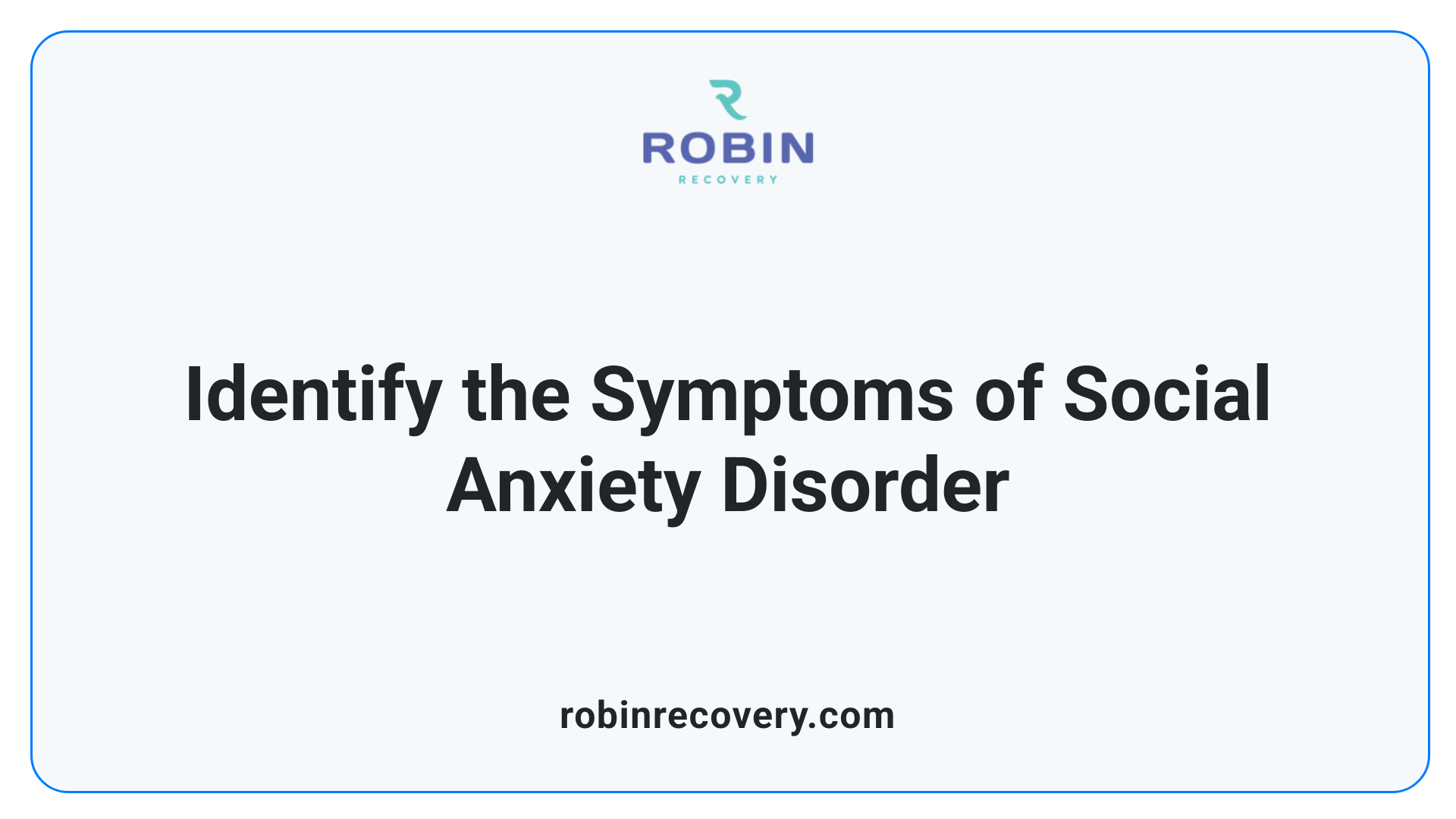
What are the symptoms of severe social anxiety disorder?
Severe social anxiety disorder, commonly referred to as social phobia, manifests as an overwhelming fear of being judged or rejected in social contexts. Individuals may experience a mix of physical and psychological symptoms, including:
- Physical Symptoms:
- Blushing
- Sweating
- Trembling
- Rapid heartbeat
- Psychological Symptoms:
- Intense self-consciousness
- Avoidance of social situations
- Fear of making eye contact
- Feelings of embarrassment
This disorder typically emerges during late childhood or adolescence and can severely hinder a person's ability to participate in everyday activities, affecting both work and school performance.
Impact of social anxiety on daily life
The pervasive nature of social anxiety can lead to significant disruptions in personal and professional relationships. Individuals may become isolated, avoiding gatherings, meetings, or even simple conversations. This isolation can exacerbate feelings of loneliness and depression. Moreover, the fear of being scrutinized often prevents individuals from taking on new challenges, impacting their overall quality of life.
Therapeutic Approaches to Managing Social Anxiety
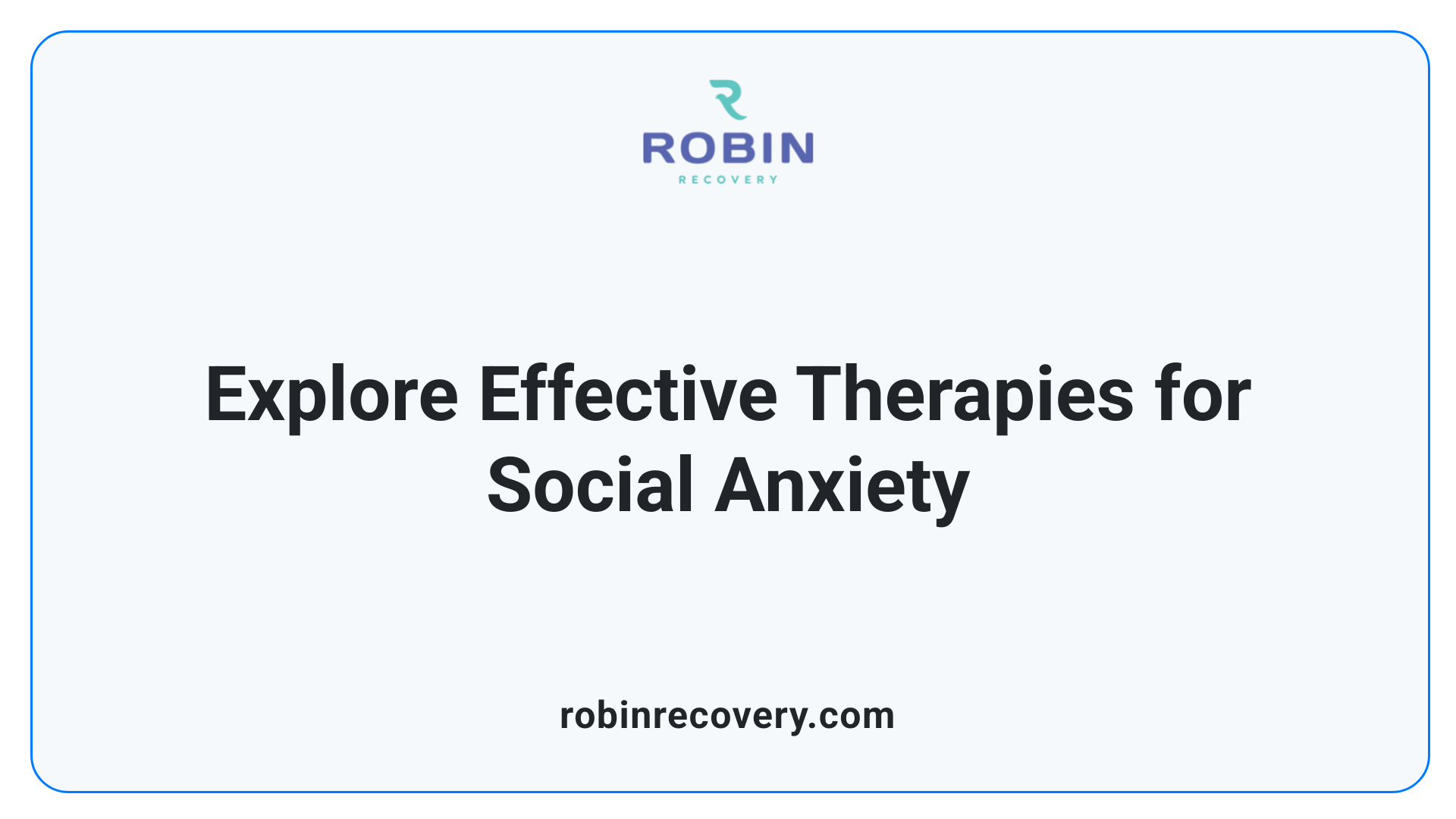
Cognitive Behavioral Therapy (CBT)
Cognitive Behavioral Therapy (CBT) is a highly effective method for treating social anxiety disorder. It focuses on identifying and challenging negative thought patterns that fuel anxiety. Through guided sessions, individuals learn to reframe their perceptions of social situations, fostering a more positive self-view and improving coping strategies.
Exposure Therapy
A key component of CBT is exposure therapy, which involves gradually confronting the social fears that trigger anxiety. This process encourages individuals to encounter anxiety-inducing situations in a controlled and supportive environment. Over time, exposure helps diminish fear and avoidance behaviors, empowering individuals to engage more freely in social interactions.
Acceptance and Commitment Therapy (ACT)
An alternative approach is Acceptance and Commitment Therapy (ACT). ACT emphasizes mindfulness and acceptance of one’s thoughts and feelings without judgment. This therapy encourages individuals to engage in social situations despite their anxiety, helping them to focus on living in the moment rather than being overwhelmed by fears of evaluation or judgment.
How can I overcome social anxiety without medication?
To overcome social anxiety without medication, consider several effective strategies. First, talk with a therapist to help identify triggers and develop coping strategies in a supportive environment. Engaging in small, manageable social interactions, like making small talk with cashiers or complimenting coworkers, can gradually build confidence. Roleplaying scenarios with trusted friends can prepare you for real-life situations, reducing anxiety about potential outcomes. Additionally, practicing relaxation techniques, such as 4-7-8 breathing, can calm your nervous system when anxiety arises.
Building Confidence Through Practice and Support
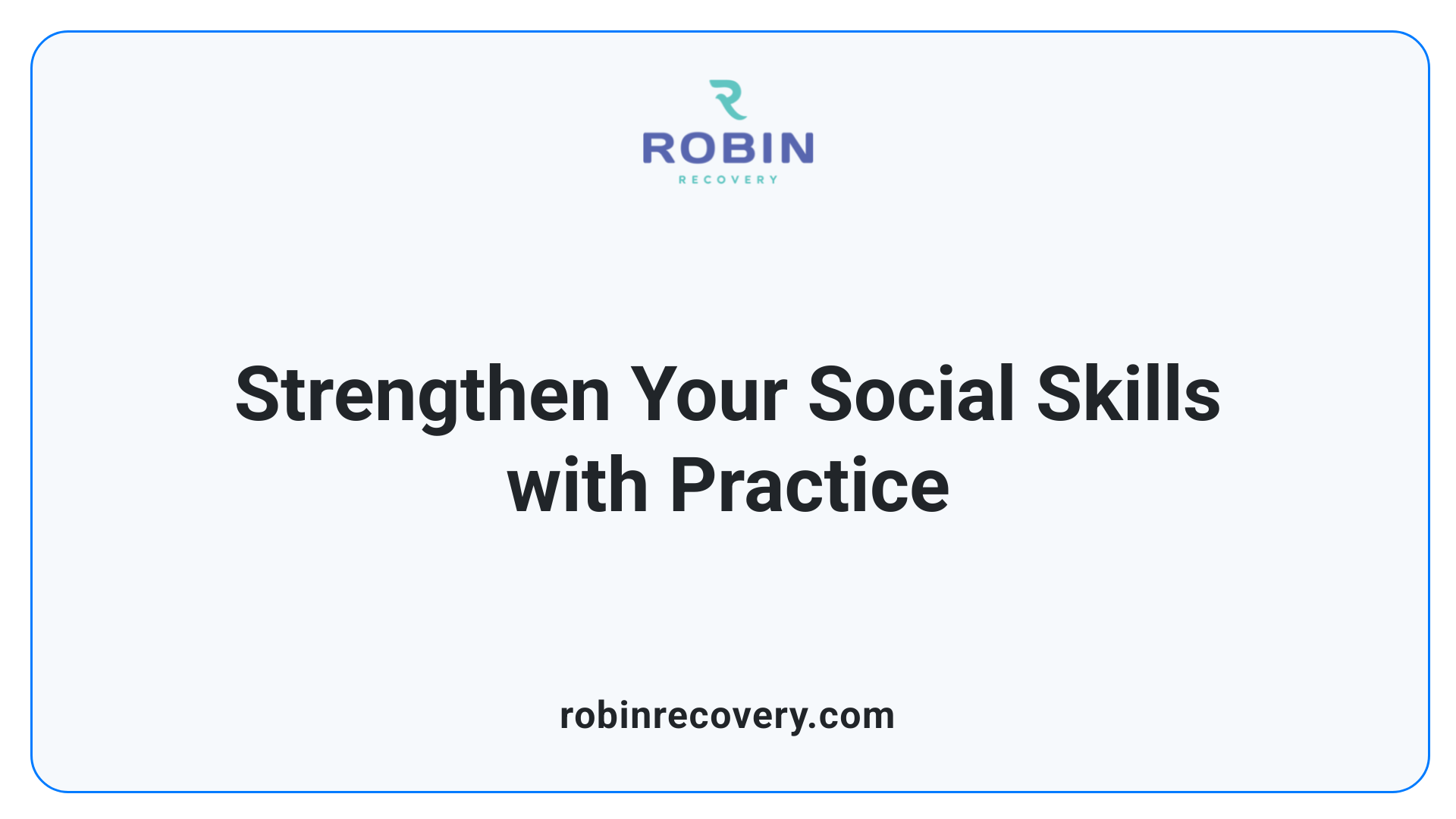
How can support groups and social skills coaching help?
Support groups provide a unique space for individuals with social anxiety disorder to share their experiences and insights with one another. This shared understanding fosters a sense of community, reducing feelings of isolation and providing emotional support. Members can discuss their challenges and successes in managing anxiety, often leading to the realization that they are not alone in their struggles.
Social skills coaching is another valuable resource. Through coaching, individuals learn effective communication techniques and gain confidence in social interactions. This practice not only enhances their social skills but also equips them to handle anxiety-provoking situations with greater ease.
What are the benefits of gradual exposure and role-playing?
Gradual exposure is a technique that encourages individuals to confront anxiety-inducing situations incrementally. Starting with less intimidating scenarios allows them to build confidence over time. For instance, one might begin by initiating small talk with a friend before progressing to larger group settings.
Role-playing can complement this approach by providing a safe environment to practice responses and behaviors. By rehearsing interactions, individuals can develop coping strategies that make them feel more prepared and less anxious in real life. This combination of gradual exposure and practice through role-playing can significantly diminish anxiety over time.
Practical Daily Strategies to Alleviate Anxiety
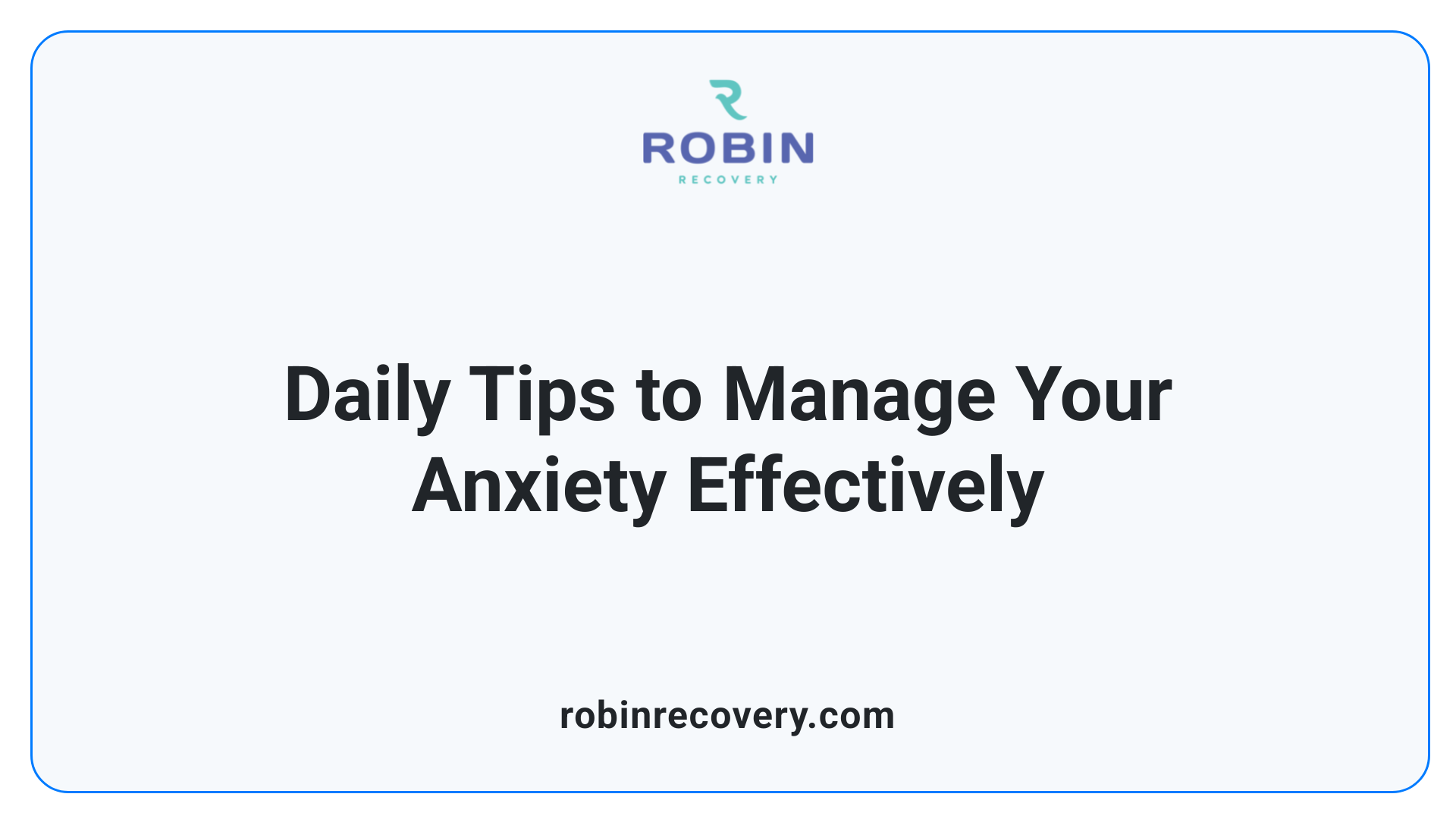
What activities can help manage social anxiety?
Managing social anxiety can be accomplished through a variety of engaging and supportive activities. Practicing structured conversation skills is one effective way to boost confidence in social settings. Joining support groups allows individuals to share their experiences and practice their social skills in a nurturing environment.
Group exercise classes or cooking classes also provide a dual benefit by combining social interaction with enjoyable activities. When individuals participate in shared experiences, they can reduce the pressure of social interactions while still connecting with others.
Employing techniques such as deep breathing exercises and progressive muscle relaxation can also alleviate anxiety symptoms significantly. These methods promote relaxation and help calm the nervous system, preparing individuals for social situations. Mindful meditation further encourages focusing on the present moment, which can help reduce overwhelming anxiety.
Journaling offers a powerful outlet for expressing thoughts about social experiences. By writing down feelings and reflections about interactions, individuals can gain insight and understand anxiety triggers better.
Additionally, utilizing cognitive-behavioral strategies like facing feared situations in a gradual manner—often referred to as a "stepladder approach"—can contribute immensely to building confidence over time. By acknowledging and confronting smaller fears first, individuals gradually learn to manage and overcome their social anxiety.
Role of Nutrition and Lifestyle in Anxiety Management
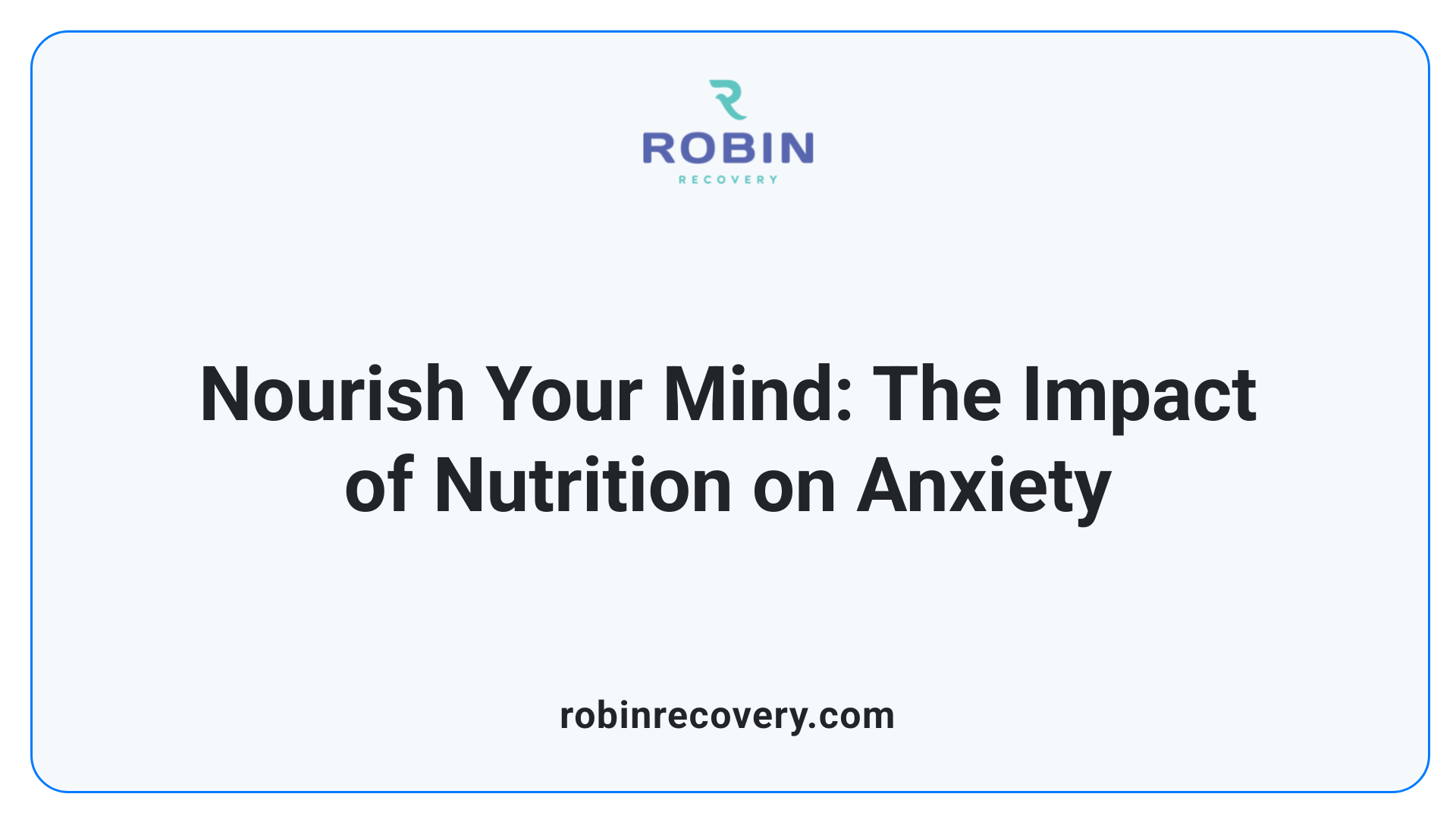
Healthy eating habits
Maintaining a balanced diet plays a crucial role in managing anxiety. Consuming regular meals with a focus on whole foods can stabilize blood sugar levels, which helps in minimizing mood swings and anxiety symptoms. Incorporating nutrient-rich options such as fruits, vegetables, whole grains, and lean proteins can enhance overall mental health.
Reducing caffeine and alcohol intake
Caffeine and alcohol can significantly impact anxiety levels. Caffeine serves as a stimulant, potentially worsening anxiety symptoms. Reducing intake or switching to decaffeinated options can alleviate these effects. Similarly, while alcohol may seem like a temporary solution for social anxiety, it is a depressant that can aggravate anxiety over the long term, making moderation essential in consumption.
Maintaining a regular sleep schedule
Establishing a consistent sleep routine is vital in managing anxiety. Aiming for 8 to 9 hours of quality sleep each night allows the body to recover and rejuvenate, helping to enhance emotional resilience. Sleep deprivation can increase vulnerability to anxiety, so prioritizing rest is key to better mental health.
Topic Importance Recommendations Healthy Eating Habits Stabilizes mood and anxiety Focus on balanced meals with ample nutrients Reducing Caffeine & Alcohol Reduces exacerbation of anxiety symptoms Switch to decaf and limit alcohol consumption Regular Sleep Schedule Enhances emotional resilience Aim for 8-9 hours of quality sleep nightly
Implementing these nutrition and lifestyle changes can provide a solid foundation for managing anxiety effectively.
Understanding and Breaking the Cycle of Self-Medication
Risks of Using Alcohol to Cope
Using alcohol as a coping mechanism for social anxiety can lead to a detrimental cycle. While it may provide temporary relief from feelings of anxiety and social pressure, alcohol is a depressant that often exacerbates anxiety symptoms over time. This creates a paradox where individuals feel compelled to consume more alcohol to manage their anxiety, leading to increased consumption and a higher risk of developing alcohol use disorders. Research shows that young adults who use alcohol to cope with social anxiety report both increased intake and more negative consequences on days when they self-medicate.
Finding Healthier Coping Strategies
To break free from the reliance on alcohol, individuals can adopt healthier coping strategies. Engaging in physical exercise, practicing mindfulness and meditation, and connecting with supportive peers can effectively reduce anxiety without the need for substances. Speaking to trusted friends and participating in support groups can foster a sense of community and understanding, making the challenge of facing social situations less daunting.
Psychological Impact of Self-Medication
Self-medication not only impacts physical health but can also have significant psychological effects. It often leads to a cycle of shame, guilt, and increased anxiety, creating a double bind. Addressing the underlying anxiety through therapy, particularly cognitive behavioral therapy (CBT), helps individuals to challenge negative thought patterns and develop constructive coping mechanisms. Moreover, educating oneself about social anxiety and adopting practical strategies—like breathing exercises and gradual exposure to social settings—can improve overall mental health and emotional resilience.
Coping MechanismsDescriptionBenefitsPhysical Exercise Engaging in 30 minutes of activity 3-5 times a week Reduces stress, boosts mood Mindfulness and Meditation Focus on the present moment Decreases anxiety, improves well-being Support Groups Sharing experiences with others Offers emotional backing, reduces feelings of isolation
The Benefits of Physical Exercise on Mental Health
Exercise as a Stress Relief
Engaging in regular physical activity is a powerful way to alleviate stress. Exercise promotes the release of endorphins and serotonin, hormones that enhance mood and improve overall emotional well-being. Just 30 minutes of physical activity three to five times a week can significantly lower anxiety levels and offer a natural alternative to substances like alcohol.
Furthermore, exercise provides a helpful distraction from daily worries, allowing individuals to focus on their workout instead of their anxiety. Activities can range from brisk walking to high-intensity workouts, depending on personal preference and fitness levels.
How Physical Activity Boosts Mental Health
Physical exercise also contributes to better mental health through improved sleep quality. Better sleep can reduce susceptibility to anxiety, as rest is crucial for maintaining a balanced mood. Additionally, regular exercise can foster a sense of achievement and boost self-esteem, which is beneficial for individuals struggling with anxiety.
Engaging in group activities can further enhance social connections and support networks, reducing feelings of isolation. By emphasizing enjoyment and satisfaction during exercise, individuals can foster healthier coping mechanisms and manage anxiety more effectively.
Holistic Alternative Therapies for Anxiety
Complementary Treatments Like Yoga and Acupuncture
Holistic approaches to managing anxiety have gained popularity due to their potential to complement traditional therapies. Yoga is an exceptional practice that not only enhances physical flexibility but also increases GABA levels in the brain. This neurotransmitter plays a crucial role in promoting relaxation and reducing anxiety symptoms. Practicing yoga regularly can help foster a sense of calm, as it emphasizes mindfulness and deep breathing techniques vital for stress relief.
Similarly, acupuncture has been explored for its benefits in anxiety reduction. This ancient Chinese practice involves inserting thin needles into specific points on the body to alleviate stress and promote mental well-being. Some studies suggest that acupuncture may help balance the body’s energy and stimulate the release of endorphins, providing natural anxiety relief.
Biofeedback and Its Benefits
Another emerging holistic therapy is biofeedback. This technique teaches individuals to control physiological processes linked to stress, such as heart rate and muscle tension. Through real-time monitoring, individuals learn to recognize their body’s stress responses and develop strategies to manage them effectively. By gaining better awareness of their physiological state, individuals can promote relaxation, thereby reducing anxiety symptoms over time.
Incorporating these holistic therapies can be an effective adjunct to traditional treatments like psychotherapy and medication. They empower individuals to take an active role in their mental health management, complementing the effects of cognitive behavioral therapy (CBT) and other modalities to achieve sustained anxiety relief.
Role of Support Networks in Handling Social Anxiety
Talking to Trusted Friends
Having open conversations with trusted friends can be incredibly beneficial for those dealing with social anxiety. This form of transparency not only alleviates feelings of isolation but also fosters supportive environments where individuals can openly share their fears without judgment. Talking about anxiety can lead to deeper connections, helping to normalize experiences and provide reassurance that others also face similar challenges.
Benefit from Community Support Groups
Engaging with community support groups offers another valuable resource for individuals struggling with social anxiety. These groups provide a platform to share experiences and coping strategies, reducing the sense of isolation. Members can offer insights and advice while emphasizing that overcoming social anxiety is a journey best faced together. Such shared experiences remind individuals they are not alone and foster a sense of belonging in their healing process.
Below is a table summarizing the supportive roles of trusted friends and community groups in managing social anxiety:
Support Type Description Key Benefits Trusted Friends Engage in open dialogues about anxiety and fears Reduces isolation and builds empathy Community Support Groups Provides shared experiences and collective coping strategies Fosters belonging and understanding
Building a Personalized Plan to Overcome Anxiety
Personal Reflection and Realistic Goal Setting
To effectively manage social anxiety, personal reflection is crucial. Understanding your triggers and the specific situations that induce anxiety can guide you toward realistic goals. Begin by journaling your experiences in social contexts. This practice can help you identify recurring patterns and fears that arise in these situations.
Setting achievable goals is essential. Start small; for instance, challenge yourself to initiate brief conversations with acquaintances. Gradually increase the difficulty of your goals, moving towards larger social gatherings. This incremental approach not only reduces pressure but also builds confidence over time.
Creating an Exit Strategy for Stressful Situations
Having an exit strategy can significantly ease the anxiety associated with social interactions. Prepare a discreet plan that allows you to leave a situation if it becomes overwhelming. This could include having a friend nearby who understands or simply stepping outside for fresh air.
Creating a list of excuses for not engaging in certain activities involving alcohol can help maintain your sobriety and reduce anxiety triggers. Additionally, consider suggesting alternative, alcohol-free activities that are enjoyable. This provides a sense of control and ensures you feel supported when navigating social situations.
Remember, developing these strategies takes time and practice. Collaborate with therapists or support groups to receive feedback and refine your plans along the way. Incorporating these elements can empower you to face social situations with greater confidence.
A Path to Living Without Fear
Overcoming social anxiety without relying on substances is entirely possible with the right strategies and support systems in place. From engaging in therapy to cultivating supportive relationships and practicing self-care, each step taken builds the foundation for lasting change. Remember, the journey to overcoming social anxiety is a gradual one, requiring patience and persistence. It's essential to reach out for help, embrace healthy habits, and continue seeking knowledge and guidance as you work towards a life where social interactions no longer feel daunting, but rather enriching and fulfilling.
References
- National Helpline for Mental Health, Drug, Alcohol Issues - SAMHSA
- Social Anxiety and Alcohol | Gateway Foundation
- How to Manage Social Anxiety Without Alcohol
- Social Anxiety Disorder: More Than Just Shyness
- 8 Effective Ways to Fight Anxiety Without Drugs - Healthline
- Social Anxiety & Substance Abuse Explained - Tranquil Shores
- Overcoming Social Anxiety Without Alcohol
- Social Anxiety Disorder: Symptoms, Tests, Causes & Treatments
